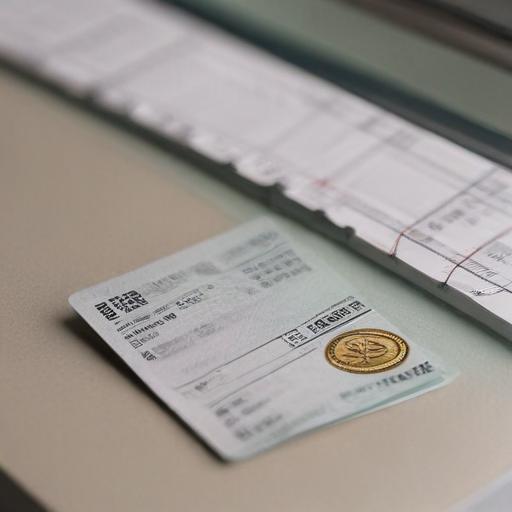A quiet revolution is reshaping the travel industry as airlines team up with crypto platforms to enable blockchain-based payments and loyalty solutions. This collaboration is unlocking a broader, $1.2 trillion global travel market that is increasingly friendly to digital assets, while offering investors a new way to participate in a sector where innovation, regulatory momentum, and consumer demand are converging.
Rising Trend: Crypto-Enabled Travel
In recent years, major carriers such as Emirates and AirBaltic have joined forces with crypto platforms like Crypto.com and NOWPayments to embed blockchain payments into their offerings. Emirates, working with Crypto.com, aims to let customers pay for flights, upgrades, and in-flight services using digital assets such as Bitcoin, Ethereum, and stablecoins like USDT and USDC. The rollout is planned for 2026 and dovetails with Dubai’s ambition to become a global blockchain hub.
Crypto-native travel platforms are also making waves. Travala.com reported that 77% of its September 2024 bookings were paid with cryptocurrency, supported by more than 100 digital assets. The platform offers a loyalty incentive of 10% cashback in Bitcoin or its AVA token, and data shows crypto users tend to spend more per booking—about 2.5 times the typical spend.
Why These Alliances Matter
The appeal of blockchain-based travel payments lies in solving common frictions in traditional travel finance. Blockchain payments can significantly reduce transaction fees, enable real-time settlements, and virtually eliminate chargebacks through immutable ledgers. For instance, Air Arabia’s use of AE Coin, a dirham-backed stablecoin, provides a local, low-volatility option for travelers in the Middle East. Other carriers and platforms—such as Alternative Airlines and Destinia—utilize crypto processors like xMoney to support hundreds of cryptocurrencies, often with instant fiat conversion to counter price volatility.
Beyond payments, loyalty programs are being redesigned for broader utility. Singapore Airlines has migrated its KrisFlyer points to a blockchain-based KrisPay system, enabling reward points to be spent across a wider network of retailers. The global loyalty rewards market is valued at about $1.5 trillion, highlighting the potential upside of more flexible and widely usable points.
Market Trends and Regulatory Tailwinds
Regulatory progress is a major accelerator. Dubai’s Virtual Assets Regulatory Authority (VARA) positions the UAE as a center of crypto innovation, including explorations into blockchain-based visas and decentralized travel insurance. In the United States, pending frameworks like the GENIUS Act are expected to provide clearer legal grounding for crypto adoption, which could further legitimize these payments in travel.
Stablecoins are gaining traction for cross-border travel payments. Providers such as Stripe and NOWPayments are enabling real-time settlements between businesses, reducing FX risk for airlines and hotels. In 2024, stablecoins reportedly surpassed traditional card networks in transaction volumes, underscoring their growing dominance in cross-border payments.
Investment Opportunities in Fintech-Travel Convergence
Investors have several clear entry points:
– Crypto Payment Gateways: Firms like NOWPayments and Crypto.com are foundational to broad crypto adoption in travel, with NOWPayments supporting 100+ cryptocurrencies and Crypto.com forming airline partnerships.
– Blockchain-Native OTAs: Travala.com and Bitcoin.Travel are leading the crypto-native OTA model, with Travala reporting strong year-over-year growth in crypto bookings and Bitcoin.Travel leveraging the Lightning Network for low-cost transactions.
– Loyalty Program Innovators: The move to blockchain-enabled loyalty, as seen with Singapore Airlines and Travala, could unlock partnerships with retail and hospitality sectors.
– Emerging Market Exposure: In regions with limited traditional banking, such as parts of Africa and Asia, blockchain-based travel platforms can expand access, exemplified by Destinia’s efforts with milli-bitcoins (mBTC) to simplify bookings for unbanked users.
Risks and Considerations
The upside is appealing, but regulators and crypto price volatility pose short-term headwinds. Still, the steady push toward stablecoins and the participation of established names like Emirates and Singapore Airlines suggest the sector is maturing and moving beyond a purely speculative phase.
A Forward-Looking View
Blockchain integration into travel is not a temporary trend but a structural shift that could transform how payments and loyalty work in the industry. As airlines and crypto platforms deepen collaborations, the travel sector stands to gain new revenue streams, stronger customer loyalty, and lower operating costs. For investors, the fintech-travel convergence offers an opportunity to back innovation at the intersection of two rapidly evolving domains.
Summary
The travel industry is quietly pivoting toward crypto-enabled payments and blockchain-powered loyalty, backed by regulatory momentum and growing real-world usage. With major airlines embracing crypto partnerships, evolving stablecoin ecosystems, and a surge in crypto-native travel platforms, the potential for enhanced efficiency and new business models is substantial. The next decade could see blockchain-based payments in travel becoming as commonplace as traditional card payments are today. Investors who monitor regulatory developments, platform interoperability, and consumer adoption stand to benefit from this emerging convergence.
Additional notes and context
– Expect continued collaboration across airlines, fintechs, and loyalty providers to expand acceptance, improve settlement speeds, and reduce costs.
– Watch for regulatory clarifications on consumer protections, cross-border transfers, and stablecoin use in travel-related transactions, as these will shape adoption trajectories.
– If you’re publishing for a broad audience, consider including a sidebar with a quick explainer of how stablecoins and blockchain payments work in travel, plus a glossary of terms like AE Coin, KrisPay, and Lightning Network.
